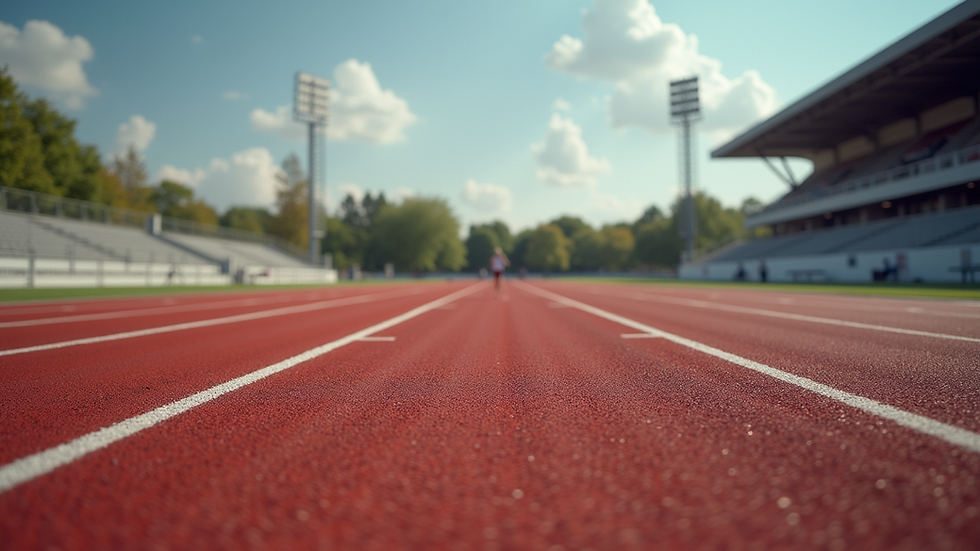Unraveling the Control Defense Mechanism and Its Influence on Athletic Performance
- Dr Paul McCarthy

- Jul 8, 2025
- 4 min read
Understanding the mental and emotional factors that contribute to athletic performance is key for athletes and coaches. One significant factor is the control defense mechanism, which greatly influences how athletes approach their training and competition. In this post, we will explore what the control defense mechanism is, how it shows up in athletes, and its potential effects on performance.
What is the Control Defense Mechanism?
The control defense mechanism is a psychological strategy that individuals use to manage anxiety and uncertainty. When facing stressful situations, athletes may seek to control their environment, emotions, and performance to handle perceived threats effectively. This mechanism is particularly important in high-pressure contexts, such as competitive sports.
For example, a soccer player may meticulously plan their training schedule, insisting on a particular routine to feel prepared for matches. This behavior often stems from various factors, including past experiences, personality traits, and the specific demands of their sport.
How Control Manifests in Athletes
Athletes display the control defense mechanism in several ways. Common manifestations include:
Over-Preparation: Athletes might train excessively or create overly detailed plans to ensure successful performance outcomes. While preparation is essential—consider that Olympic athletes often spend over 10,000 hours training—it can lead to burnout if taken to an extreme.
Micro-Managing: Some athletes may attempt to control every aspect of their training environment. For instance, they may insist that their teammates perform only in a certain way or dictate practice structures. This need for control can lead to tension and lower team morale.
Rigid Mindset: An athlete’s desire for control can lead to inflexibility in their training habits. For example, a basketball player may refuse to adjust their shooting technique, even if they are not achieving desired results. This rigidity prevents adaptation to injuries or changing match conditions.
Self-Criticism: Athletes using control may harshly judge themselves for missed opportunities or mistakes. For instance, a swimmer who focuses only on split times, without recognizing the challenging conditions of a race, may overlook factors that contributed to their performance.
Avoidance of Uncertainty: Many athletes shy away from situations where they feel they cannot exert control, limiting their growth. For example, an up-and-coming tennis player may withdraw from tournaments to avoid facing unpredictable opponents.
The Psychological Impact of the Control Defense Mechanism
The control defense mechanism greatly affects an athlete's mental well-being. Initially, exerting control may offer relief from anxiety and boost performance. However, relying on this coping strategy can lead to long-lasting psychological issues.
Anxiety and Stress
The pressure to maintain control can increase anxiety levels. Studies show that 25% of athletes experience higher anxiety during competitions, which can impact focus, decision-making, and overall performance.
Loss of Enjoyment
When athletes focus mainly on control, the joy of the sport can diminish. According to a survey from the American Psychological Association, 70% of youth athletes reported feeling pressure, which overshadowed their love for the game.
Burnout
The constant drive for control can cause burnout. This fear can create a cycle of perfectionism that exhausts athletes mentally and physically. Research indicates that nearly one-third of athletes report burnout at some point in their careers, undermining their motivation and performance.
Balancing Control and Adaptability
Recognizing the influence of the control defense mechanism is critical for athletes aiming for optimal performance. Striking a balance between control and adaptability is essential. Here are some strategies to consider:
Mindfulness Practices: Mindfulness can help athletes become more aware of their thoughts and feelings, allowing them to recognize control behaviors. Techniques like meditation or focused breathing exercises can promote relaxation and acceptance of uncertainty.
Emphasis on Process Over Outcome: Athletes should shift their focus from rigid outcome-based goals to a more flexible process-oriented approach. This means celebrating small milestones in training rather than only focusing on winning or losing.
Encouraging Team Dynamics: Fostering open communication and collaboration within teams can help reduce the need for control. Trust among teammates can create a supportive environment, making adaptation to challenges easier.
Setting Realistic Expectations: Athletes need to understand that perfection is not achievable. Setting attainable goals and accepting occasional setbacks can alleviate the drive to control every detail.
Seeking Professional Support: Consulting with a sports psychologist or mental performance coach can provide valuable strategies for managing control-related behaviors effectively.
The Path to Athletic Fulfillment
The control defense mechanism is a powerful psychological process influencing athletic performance. Understanding how this mechanism manifests and its potential impacts—such as anxiety, stress, and burnout—can help athletes cultivate healthier coping strategies.
Finding the right mix of control and adaptability is vital for improving performance and ensuring well-being. By incorporating mindfulness practices, focusing on growth rather than strict outcomes, and encouraging teamwork, athletes can lessen the challenges associated with the need for control. This awareness allows athletes to tap into their full potential while savoring the excitement of competition.

As athletes navigate their careers, embracing uncertainty can lead to lasting success both on and off the field. By letting go of the constant need for control, they can genuinely enjoy their sport, resulting in more fulfilling athletic journeys.




